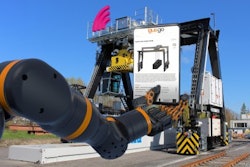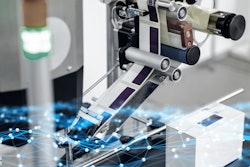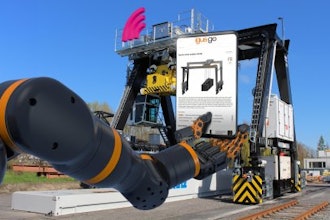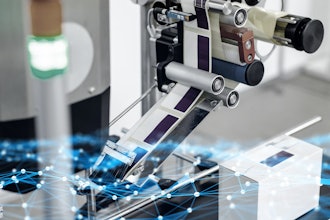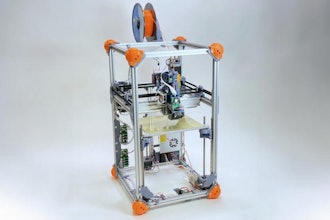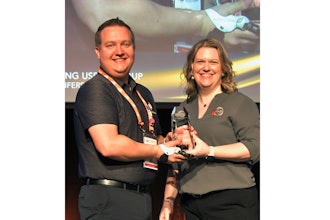Manufacturers live and work in an increasingly mobile and agile world; in order to conduct operations in an efficient and streamlined manner, they need to have access to massive amounts of data at all times. Anna Bailey, managing partner with Verizon Enterprise Solutions' Manufacturing vertical practice, gave us some insight into the "Mobile First" approach that is changing manufacturing operations.
Bridget Bergin (BB): Let’s start with “Mobile First” — what do you mean by that term?
Anna Bailey (AB): Since technology allows many of us to now work anywhere and anytime, it no longer makes sense to design business processes on the primary assumption that we will be sitting at our desks between 9am and 5pm. “Mobile First” is the recognition that, in most enterprises today, employees, suppliers and customers are typically inherently mobile, so we need to build processes, write applications, deliver information and empower decisions with mobility as the primary consideration.
BB: Can you describe the “Mobile First” approach to manufacturing?
AB: Market conditions, including the need for accelerated decision-making and advances in technology, are ideal in the manufacturing space for disrupting and enabling new business processes and models. "Mobile First" is changing manufacturing by allowing employees to both receive and create customized data on handheld devices or ruggedized tablets that can bring efficiencies to how their jobs get done. Specifically, integrating mobility into the business can result in logistical accuracy, intelligent manufacturing, real-time tracking and transparency in the field. For example, using mobility solutions, a plant manager can now have command and control over production, quality control, safety and logistics based on real-time analytics and applications. Essentially, ‘Mobile First’ is allowing manufacturers to improve the customer experience, drive growth and business performance all while managing risk.
BB: How does “Mobile First” change manufacturing operations?
AB: "Mobile First" changes manufacturing operations by helping to enable the delivery of the most profitable products to market faster. Rapid access to data and predictive analytics, enabled by mobilizing operations, allows manufacturers to better align production capabilities and product mix to customer demand.
How does this change the picture for the manufacturer? At a basic level, it’s about increasing agility, collaboration, greater accuracy and continuous process improvements. In addition, mobility is allowing better integration with the field, enabling operations to be more responsive to the needs of the sales force and, in turn, the customer. Mobility is also adding structure to the voluminous amount of data that is being generated by the Internet of Things (IoT), which is leading to better ‘knowledge management.’ In short, mobility is fast becoming an essential management and operations tool for manufacturers. The process and pace for delivering products and services to market has been altered and accelerated and that means the devices in customers’ hands create expectations for immediacy and customization.
BB: Are there any obstacles in transitioning to a “Mobile First” approach?
AB: As with any business sea change, there are obstacles that will need to be overcome before mobile business intelligence becomes ubiquitous on notebooks, tablets and smartphones in manufacturing operations. Identity and access management, widely held perceptions of security threats, outdated infrastructure and cultural mindsets are some of the major challenges facing enterprises today.
Determining best processes for managing identity and access management — essentially, who has access to what information and in which geographies — is a fundamental underpinning of successful mobility integration. Similarly, the ability to secure data on mobile devices is absolutely critical and a prohibitive factor to "Mobile First" adoption is the widely held misperception of increased cybercrime risk. To the contrary, Verizon’s 2015 Data Breach Investigations Report found that incidents of exploited security vulnerabilities across mobile platforms during 2014 were negligible. On an individual user level, however, mobile devices are more easily lost or stolen and can certainly pose a security risk.
Further, integrating mobility across an enterprise requires updated infrastructure and strong in-building wireless connectivity. One emerging trend that we are seeing is CIO engagement with line of business leaders to build the enterprise architecture with mobile-enabled operational technology.
And technology aside, mindsets must evolve as well. We must get past the widely held perception that the ‘possible’ is ‘impossible’ simply because it’s not been done that way before.
BB: Is there anything else you’d like to add?
AB: Today, just about every large enterprise — and indeed our entire economy — is already heavily dependent upon mobility services. "Mobile First," it could be argued, is not a novel technology concept so much as it is the overdue realization of a fundamental shareholder value imperative.





